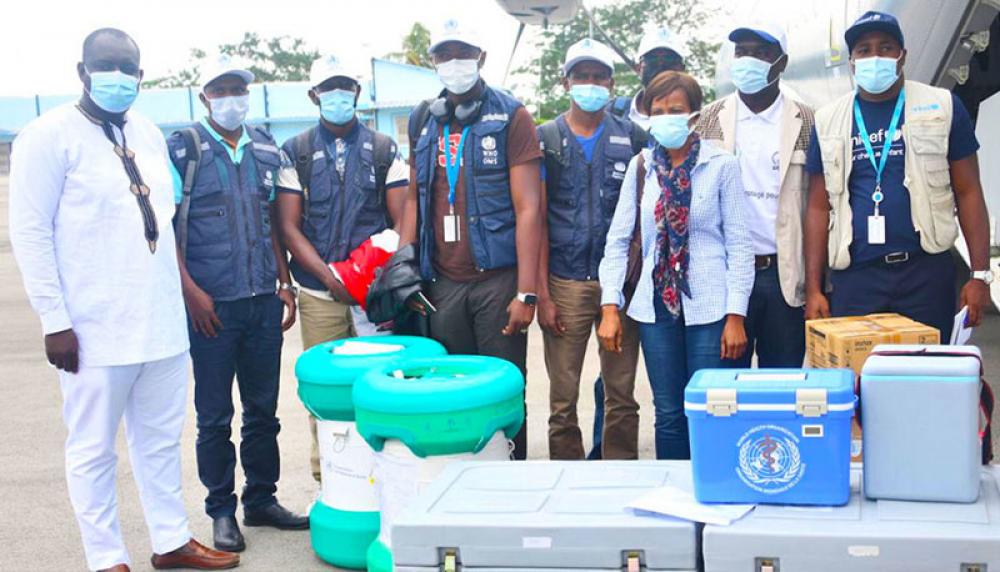Just Earth News | @justearthnews | 18 Aug 2021, 07:42 am Print
 Image: WHO
Image: WHO Ebola
New York: The vaccination against Ebola of high-risk populations began on Monday in Côte d’Ivoire following the discovery of an outbreak in the country three days ago. The swift response came after vaccines manufactured by Merck, which the World Health Organization (WHO) helped to secure to fight a four-month long outbreak in neighbouring Guinea, were quickly sent to the country.
The deployment from Guinea included 2,000 doses that are being used under the “ring strategy,” where people who have come into contact with a confirmed Ebola patient are given the vaccine, as well as first responders and health workers.
‘A critical tool’
Guinea also sent around 3000 vaccine doses manufactured by Johnson & Johnson. These are being used as booster jabs in areas not experiencing active transmission.
“The Ebola vaccine is a critical tool in the fight against the virus and so it’s a top priority to move rapidly and start protecting people at high risk of the disease,” said WHO Regional Director for Africa, Dr Matshidiso Moeti, who described the quick response as “remarkable and shows that with effective sub-regional solidarity we can quickly take measures to extinguish lethal infections that can potentially flare up into large outbreaks.”
Guinea link unconfirmed
The outbreak was declared in Côte d’Ivoire after the Ebola virus was confirmed in a patient who travelled to Abidjan by road from Guinea. One suspected case and nine contacts have also been identified and are being monitored, although no deaths have been reported.
There is no indication yet that the current outbreak in Côte d’Ivoire is linked with the one that was in Guinea and further analysis and genomic sequencing is being carried out to help determine any connection.
Controlling Ebola outbreaks
The outbreak is Côte d’Ivoire’s first since 1994 and to support the country’s efforts to control its spread, the WHO is deploying experts to join their country-based counterparts to help ramp up infection prevention and control, diagnostics, contact tracing, treatment, community mobilization and cross-border surveillance. The UN agency is also assessing whether additional vaccines will be needed to curb the disease.
In Guinea, the health authorities are stepping up surveillance, carrying out further investigations, identifying contacts in readiness for vaccination and readying an Ebola treatment centre.
Since the Ebola outbreak was declared in Guinea earlier this year, WHO has been supporting six countries, including Côte d’Ivoire, to prepare for a potential outbreak.
This included support in disease surveillance, screenings at border crossing points and in high-risk communities as well as setting up rapid response teams, improving testing and treatment capacity and reinforcing community outreach and collaboration.
The outbreak in Côte d’Ivoire is the third this year after the Democratic Republic of the Congo and Guinea.
- Alarming projection: Global breast cancer cases could cross 3.5 million by 2050, shows study
- Exam stress to emotional distress: Study reveals the dark side of academic pressure
- Vegetarian diet linked to lower risk of five major cancers, study finds
- Ukraine’s health system under fire: Attacks spike 20% in 2025, WHO warns
- A dog’s loving lick turned deadly — She woke up without her limbs





-1763561110.jpg)
